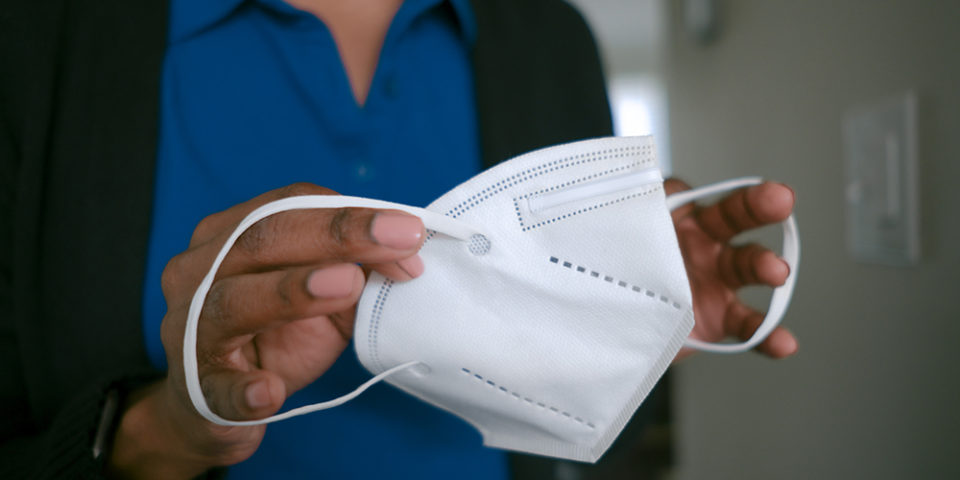Why it might be time to upgrade your mask
Although we probably all have a stash of cloth masks, they might not be enough to protect against the new COVID-19 variant, omicron. Infectious disease expert Helmut Albrecht, MD, explained why.
“We’re past the time where cloth masks are recommended, because omicron is so infectious,” he said.
Cloth masks reduce the amount of virus that passes into the environment by blocking droplets that are exhaled, coughed or sneezed. However, they are less likely to protect the wearer from inhaling the virus.
Dr. Albrecht said high grade masks such as N95 and KN95 offer the best protection against omicron.
“We used to say N95 masks were best reserved for the hospitals. Right now, I think we have enough supply that everybody should have a good mask,” he said.
Which mask should you choose?
Dr. Albrecht said KN95 masks are easier to fit around your face. “With N95 masks, you actually need some training and fit testing to make them work well. But KN95 masks are in good supply and would be a good option.”
Surgical masks also are better than using a cloth mask. They should have three layers and a water repellent coating on the outside.
What to know about N95 and KN95 masks
Also called respirators, these masks are primarily used by healthcare workers because they filter 95% of airborne particles. They seal tightly to the face, which may feel harder to breathe through than a cloth mask.
N95 masks are regulated by the National Institute for Occupational Safety and Health (NIOSH), whereas KN95 masks are regulated by the Chinese government. Both tend to be more expensive than cloth or surgical masks.
According to the Centers for Disease Control and Prevention (CDC), you should not wear an N95 mask if:
- You have certain types of facial hair
- You’re having trouble breathing through it
- The mask is wet or dirty
Also, avoid wearing an N95 mask with another kind of mask or second respirator.
Should children wear N95 or KN95 masks?
According to the CDC, although respirators are available in smaller sizes, they are typically designed to be used by adults in workplaces, and therefore have not been tested for broad use in children.
Have questions about the COVID-19 vaccine?
Find answers to frequently asked questions about the COVID-19 vaccine, including how to get the shot.


